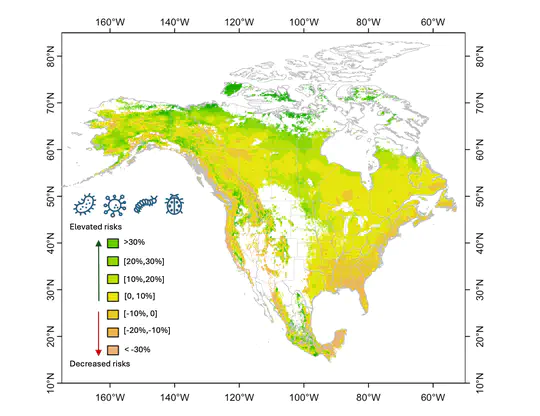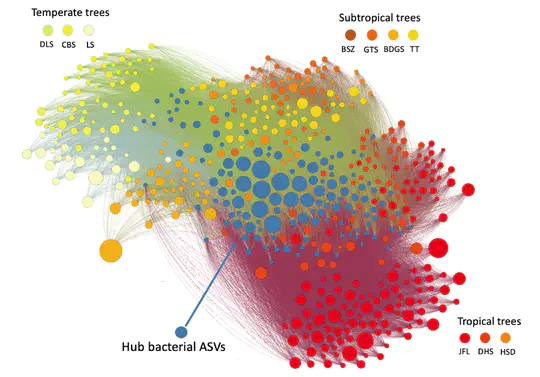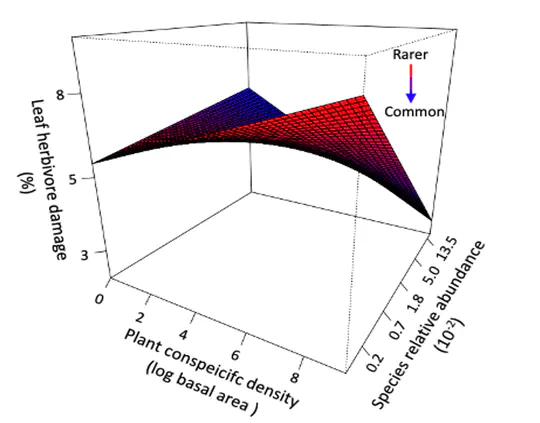About
Climate change is impacting our ecosystems, and small organisms like insects and microbes are often the first to respond due to their short generation times. These rapid responses are driving some of the most pressing challenges such as emerging diseases, pest outbreaks, and biodiversity loss.
I’m interested in understanding how microbes and insects respond to climate change and amplify its impacts on ecosystems. Through both field observations and controlled experiments, I investigate fundamental questions in community ecology and macroecology, such as the biogeography of plant-associated microbes, the climatic drivers of major plant diseases and pests, and how microbes and insects influence plant diversity and distribution in a changing world.
I am currently a Postdoctoral Fellow in the Davies Lab at the Biodiversity Research Centre, University of British Columbia.
- Plant-associated microbes
- Community assembly
- Climate change impacts
- Macroecology and biogeography
- Disease and pests
PhD in Biology, 2019 - 2023
Université du Québec à Montréal
MSc in Ecology, 2015 - 2018
Sun Yat-Sen University
BSc in Biology, 2011 - 2015
Sun Yat-Sen University
Research
First-author Publications
Contact
- zihui.wang@botany.ubc.ca
- 2212 Main Mall, Vancouver, BC V6T 1Z4
- DM Me





